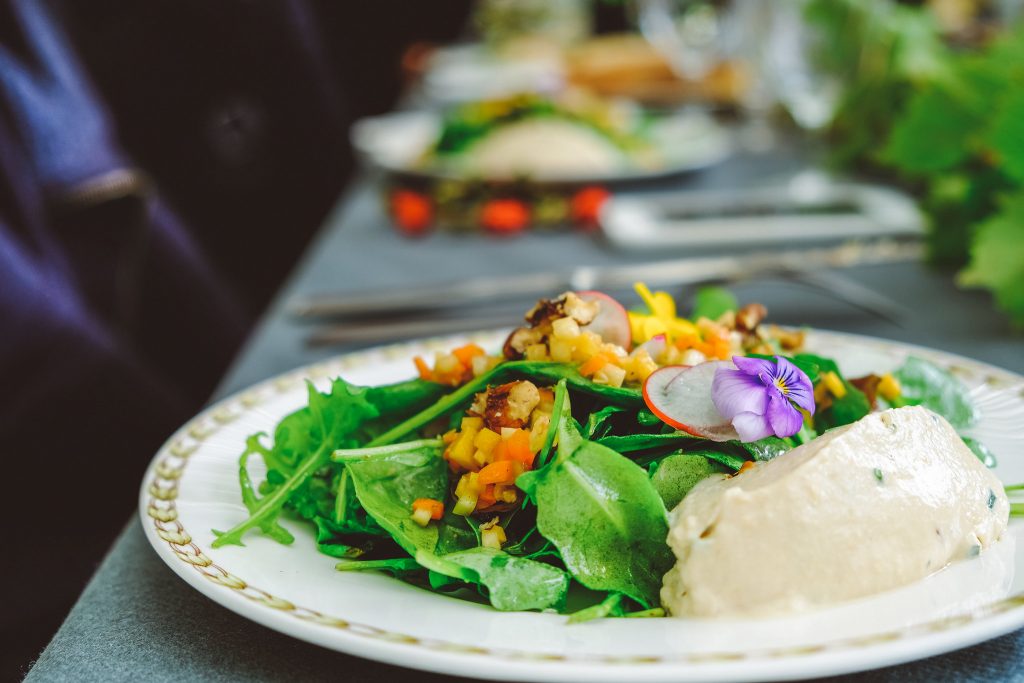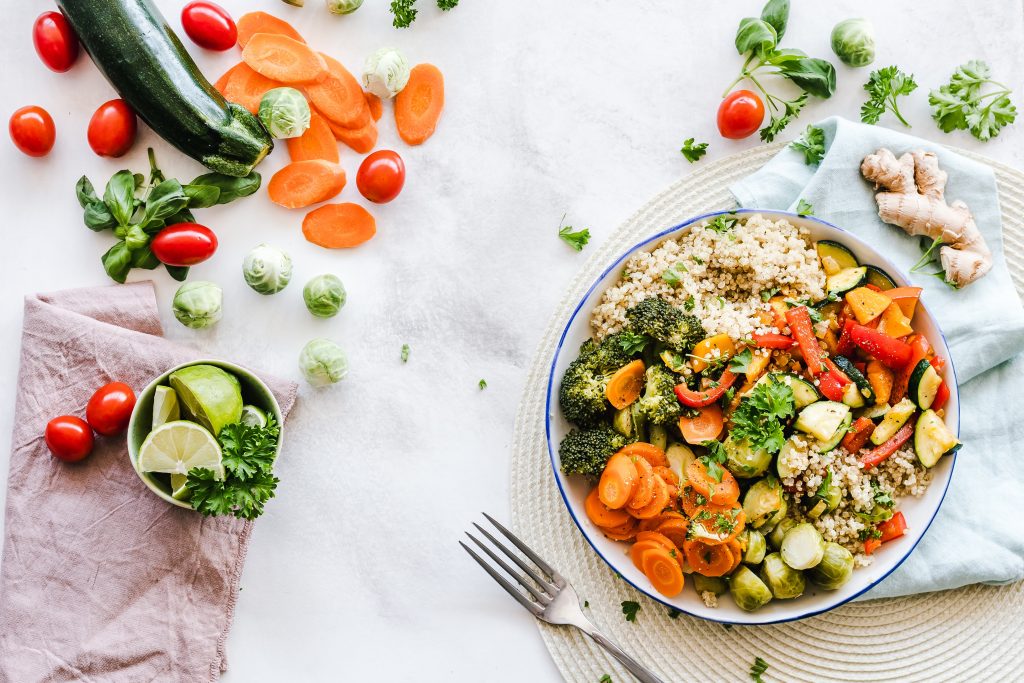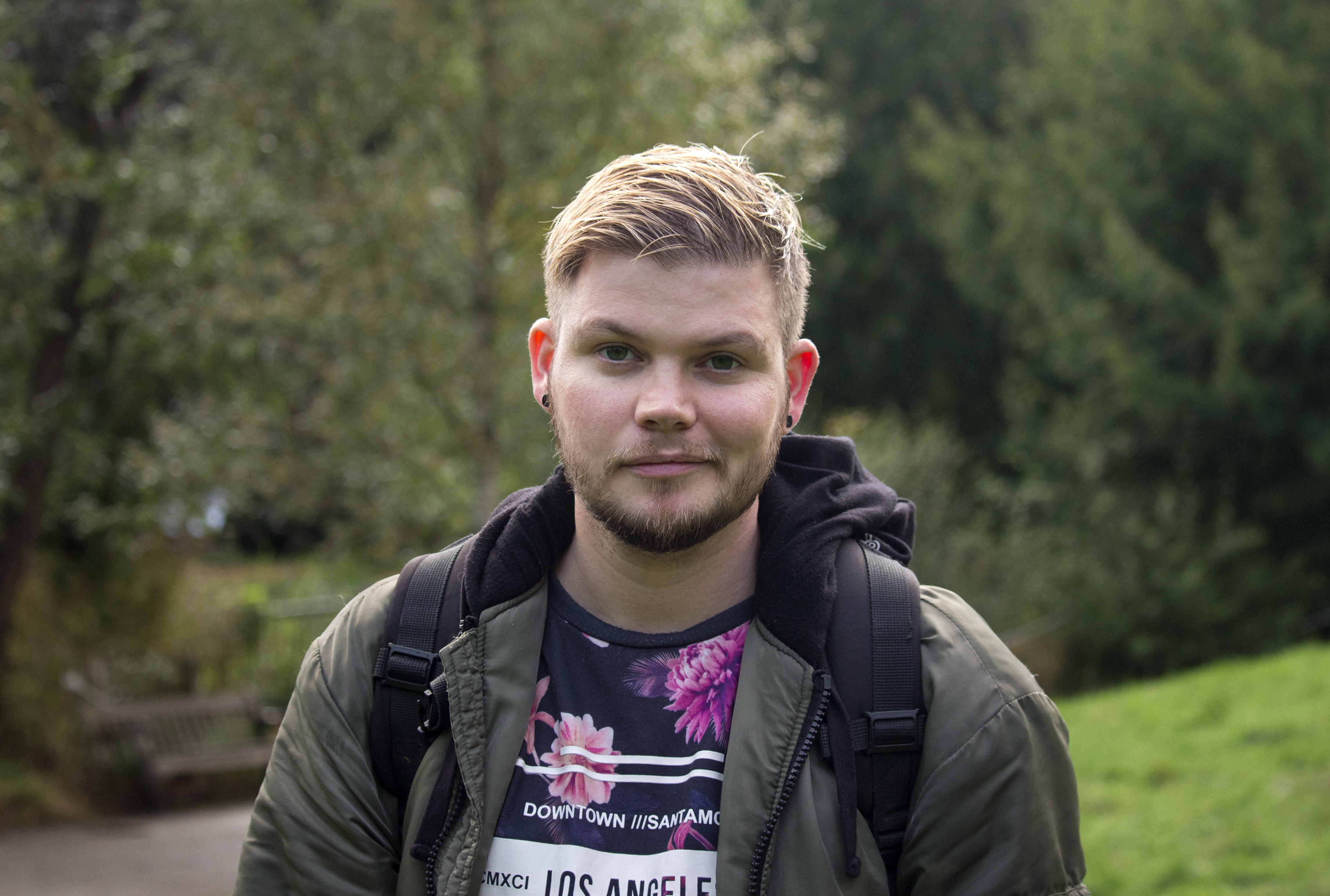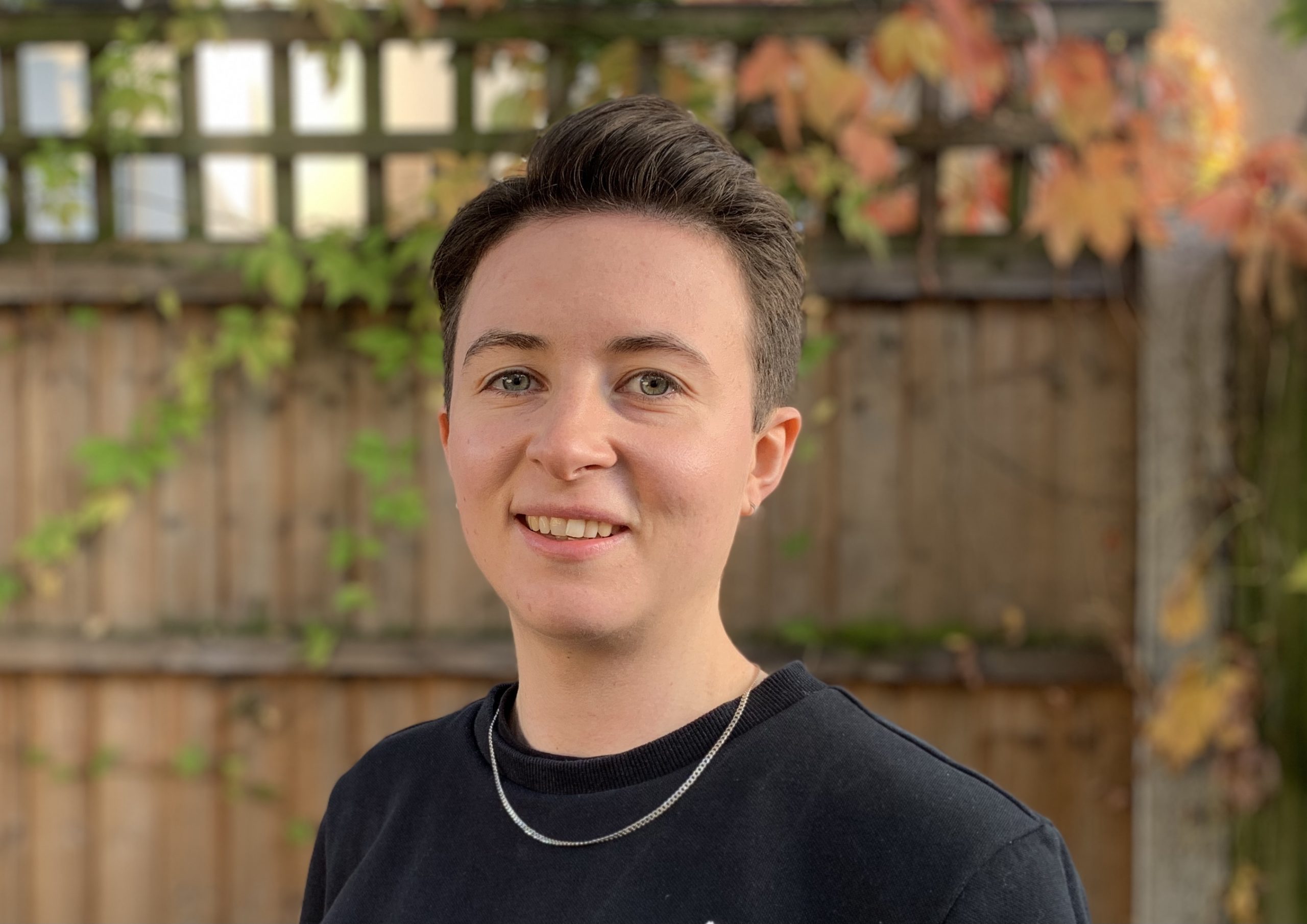Veganism is booming in the UK. But in many hospitals, schools and prisons, there is still a lack of plant-based options on the menu. Campaign groups are now pushing for a legislative requirement for public bodies to provide for vegans – on human rights grounds. Ella Braidwood reports.
In September last year, photographer Chris Jones, who is a vegan, was admitted to Solihull Hospital in the West Midlands for two days after having walking difficulties.
On his first day, Jones, 32, was offered a sandwich by one of the nurses and asked for a vegan option – he was left nonplussed by the response. “The nurse actually didn’t know what a vegan was, it was shocking really,” he explains. While he says that staff tried to be helpful, all he was offered was a sandwich with lettuce, tomato and cucumber – but the bread was spread with butter, so he couldn’t eat it.
Luckily, one of Jones’ friends brought him some vegan food to eat. Still, on his second day, Jones faced the same problem again. “The nurse asked if I wanted some oxtail soup, and I was like: ‘So do you have a vegan version of this oxtail soup?’ She said: ‘No, oxtail soup is vegan, it’s got nothing in it.’ I was like: ‘No, it’s got oxtail in it.’ They didn’t understand what it meant.”
Jones describes his time in the NHS-run hospital as a “really bad” experience because he couldn’t get the right food.
“I kind of felt like I was a weirdo,” he says. “A weirdo for even thinking or asking [for a vegan option]. It made you feel like you’re asking for something that’s not recognised or understand. You kind of feel a bit small, really. They don’t really understand me, they don’t really care.”
Jones is one of a growing number of people backing a legislative push requiring public bodies – also including schools and prisons – in the UK to ensure there is at least one fully-plant based option on their menus everyday. With a sharp rise in the number of people going vegan or reducing their meat consumption across the UK – the estimated population of vegans quadrupled between 2014 and 2018 to 600,00 – the issue is more relevant than ever.
Vegan Rights Are Human Rights, Say Campaigners

Image credit: Ella Olsson/ FreshnLean
For those not in the know, vegans seek to exclude all uses of animals or animal products – such as for food or clothing – as far as possible from their lives. Reasons behind going vegan include ethical and, increasingly, environmental factors in response to the growing threat of climate change (it’s estimated that greenhouse gas emissions would be cut by two thirds if the whole world went vegan).
You kind of feel a bit small, really. They don’t really understand me, they don’t really care.
– Chris Jones, a vegan
Indeed, vegans are no longer on the fringes of society; they have entered the mainstream (one study found that in the four years to February 2018, the growth rate of meat substitutes on the European market was more than 450 per cent). This was apparent on Saturday (May 11) when Scottish national newspaper The Scotsman printed a front page splash on campaign group Go Vegan World, which successfully assisted a parent challenging East Renfrewshire Council over it not providing a vegan menu for school pupils in the area.
The organisation is calling for guaranteed plant-based options on daily menus in all state entities internationally. Their argument is made on the basis that vegan rights are a matter of human rights – just as public bodies provide foods for people of different religions, they should also have options for those with non-religious beliefs, including vegans.
Speaking to RightsInfo, Go Vegan World’s legal counsel Barbara Bolton cites a number of human rights laws, which she says protect veganism, including the right to freedom of thought, conscience and religion under Article 9 of the Human Rights Convention. She also highlights Article 9 of the UK Human Rights Act 1998, as well as the right to equality and freedom from discrimination under Article 14 of the Human Rights Convention and the Equality Act 2010 in the UK.
The UK Equalities and Human Rights Commission, too, has backed the view that Article 9 of the UK Human Rights Act incorporates those on a fully-plant based diet, saying that this law “protects a wide range of non-religious beliefs including atheism, agnosticism, veganism and pacifism.” The Human Rights Court has even waded in on the debate, stating in a ruling on the 1993 lawsuit brought by a prisoner in Britain, titled W v UK, that “vegan convictions with regard to animal products fall within the scope” of Article 9 of the Human Rights Convention.
“There are vegans in all walks of life, accessing all of our public services and whenever food is being provided it should include food that’s suitable for vegans,” says Bolton. “Vegans shouldn’t have to make special arrangements or wrangle with public bodies to persuade them to provide.”
Bolton goes on to dismiss the misconception that a plant-based diet is not nutritious enough for humans, pointing out that health organisations like the British Dietetic Association and the American Academy of Nutrition and Dietetics have stated that vegans can lead healthy lives.
What’s more, she says, veganism provided by public authorities could be economically beneficial to taxpayers. “More vegan food for everyone could also reduce the cost of public food provision,” she continues. “A common argument against it is the idea that if we cater for vegans we’ll have an endless list of different demands, but in fact vegan food covers most religious and other dietary requirements.”
Vegans Have The Right To ‘Not Be Discriminated Against’

Image credit: Pexels
In November 2018, Bolton helped set up a petition – demanding legislation for Scottish public sector menus to include fully-plant based options everyday – when she worked as a volunteer for Go Vegan Scotland (confusingly, this is a completely separate campaign group to Go Vegan World).
The petition, jointly lodged by The Vegan Society, received 8,000 signatures in just six weeks, and campaigners are waiting on a response from the government on the next steps. Many note the example set by Portugal, which introduced legislation requiring public bodies to provide at least one vegan option on their menus in January last year.
Vegans have the right to practice veganism when in the care or control of state entities
Jeanette Rowley, vegan rights advocate at The Vegan Society
Founded in 1944, the Vegan Society, which is the oldest vegan society in the world, has been instrumental in the UK-wide legislative push with its “Catering for Everyone” campaign. As Jeanette Rowley, vegan rights advocate at The Vegan Society, explains: “This isn’t really about providing for a diet. Veganism is much more than a diet. Veganism is an ethical orientation that’s protected in law.”
Rowley argues that, alongside human rights laws, vegans in the UK are protected by the Equality Act 2010. “Vegans have the right to practice veganism when in the care or control of state entities,” she adds. “It doesn’t just concern the human rights legislation, it concerns the Equality Act as well. Vegans shouldn’t suffer or be at a disadvantage – they’ve got the right to not be discriminated against.”
For Jones, a legal requirement for state bodies to provide vegan options would have marked improvement on his quality of life. “The knock-on effect of having a vegan meal for everybody would be so beneficial,” he says. “Not just for the people that are choosing to eat those foods but for staff members to actually understand what it means to be vegan.”







